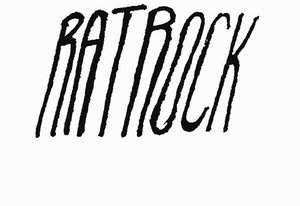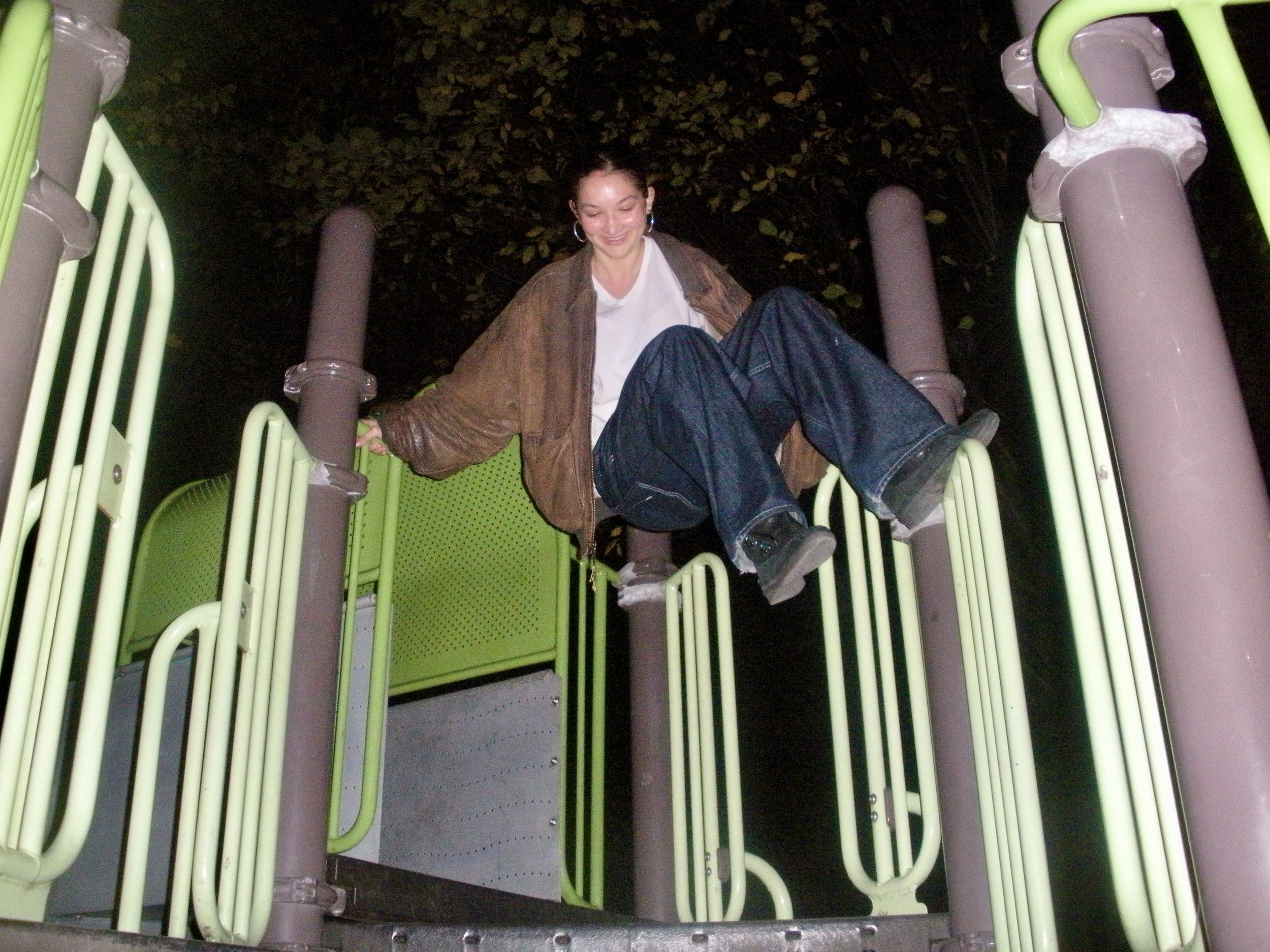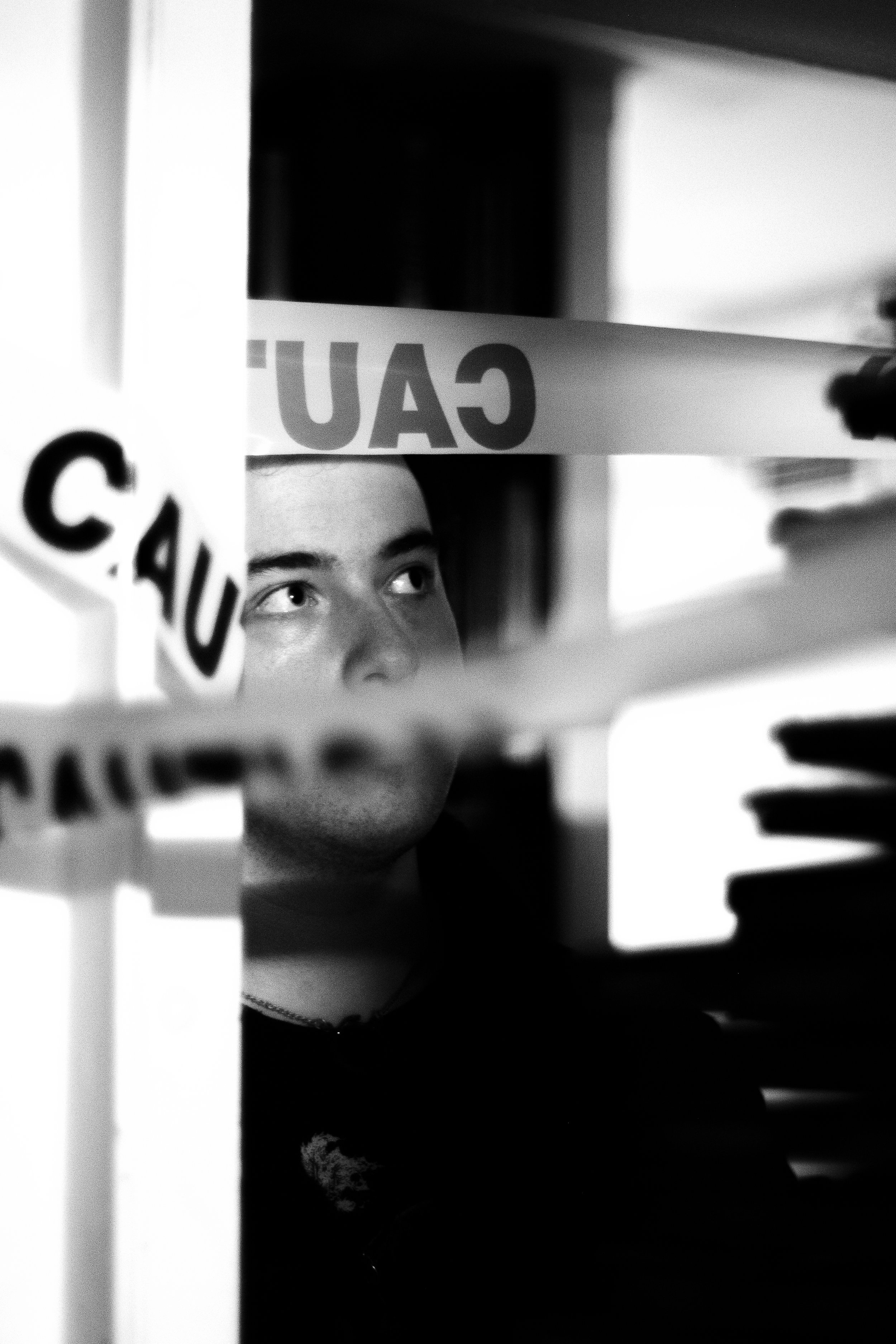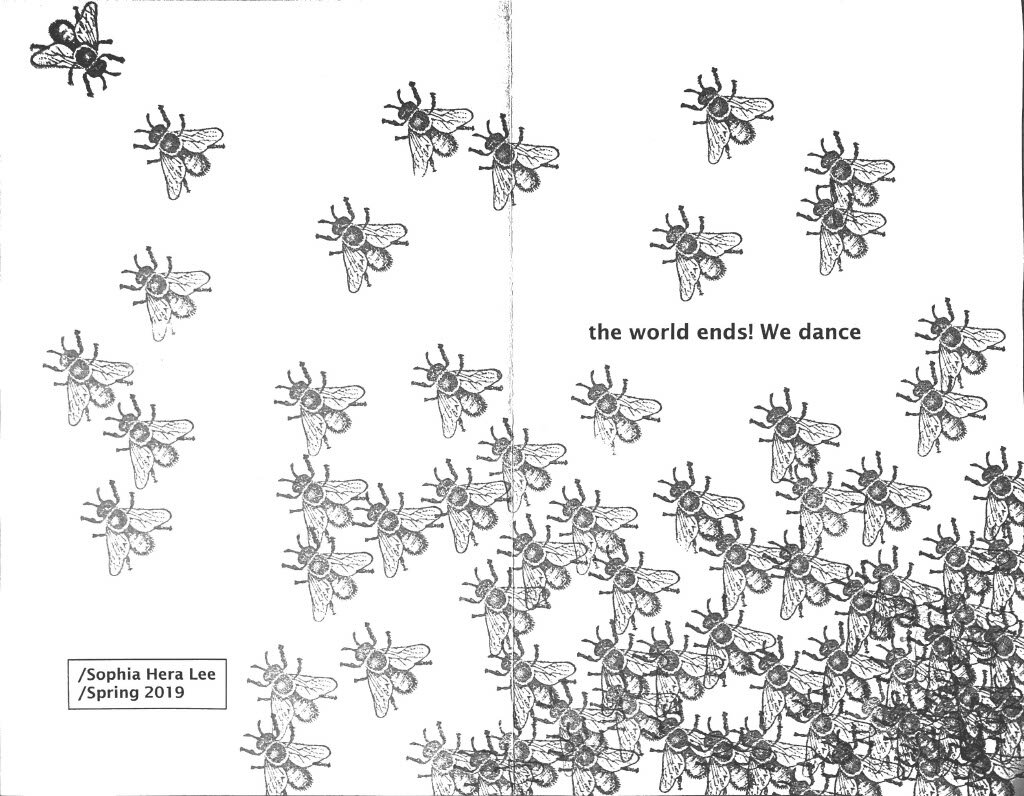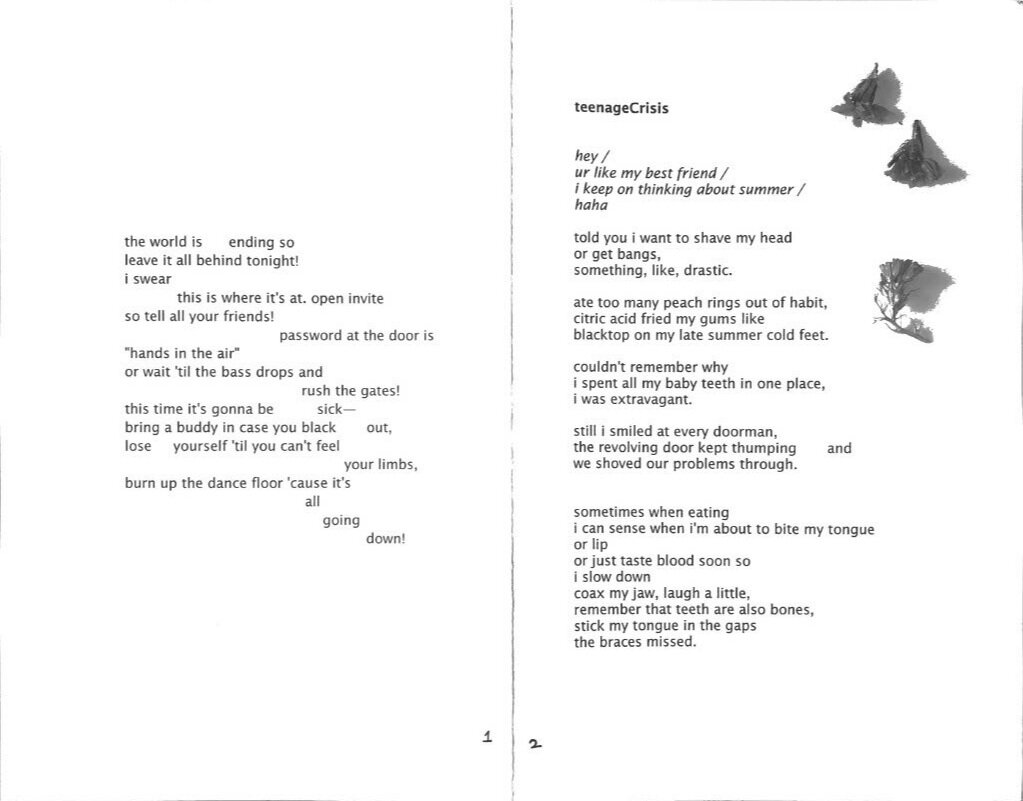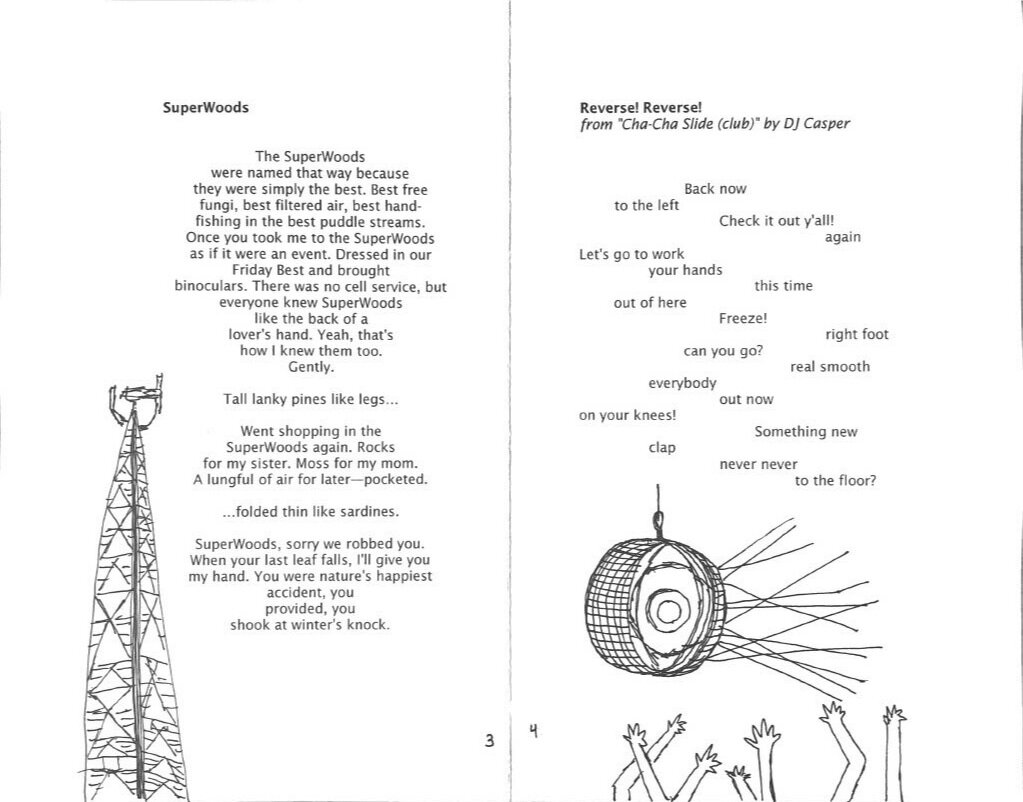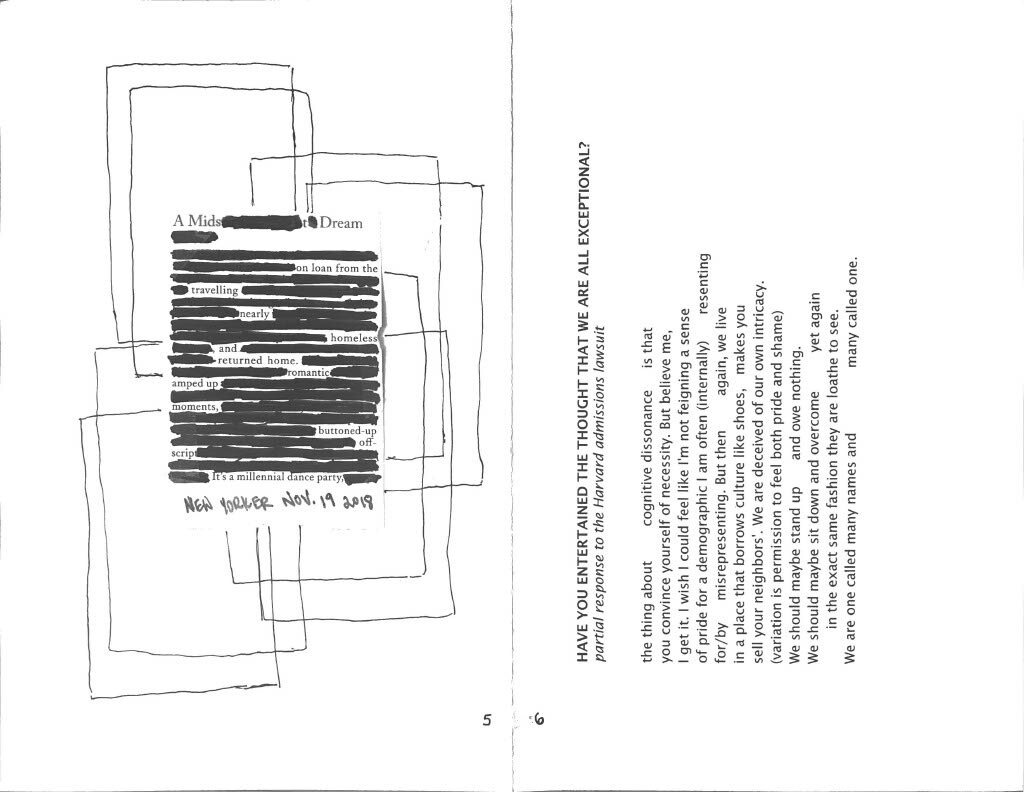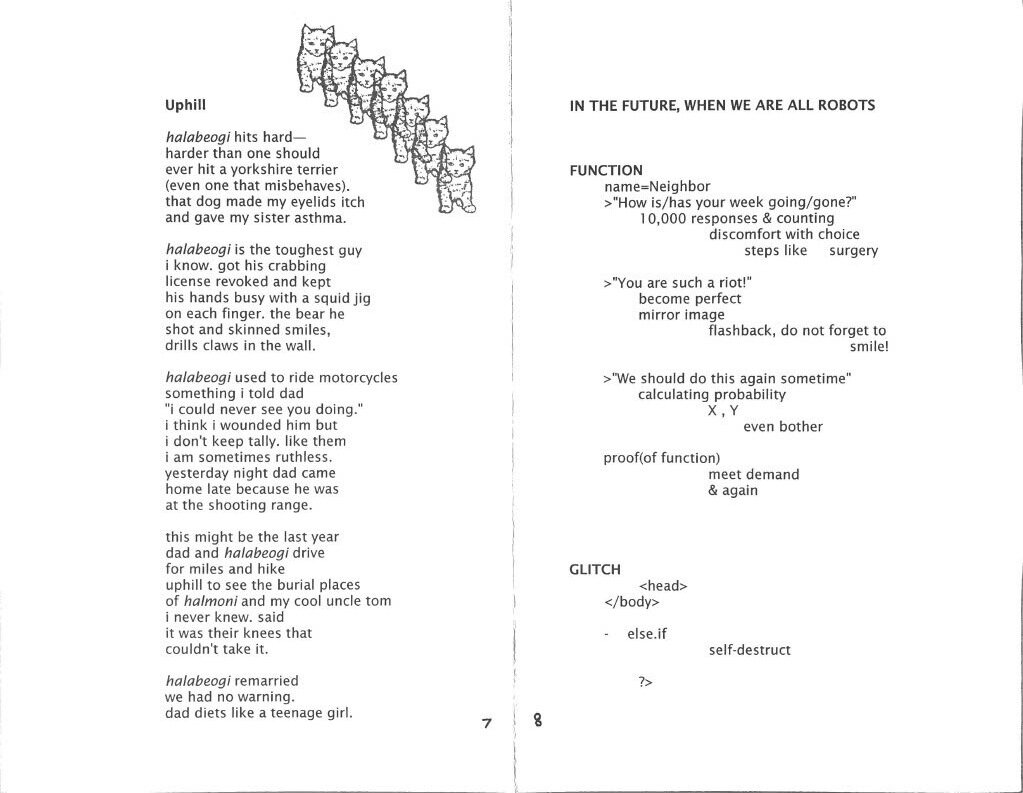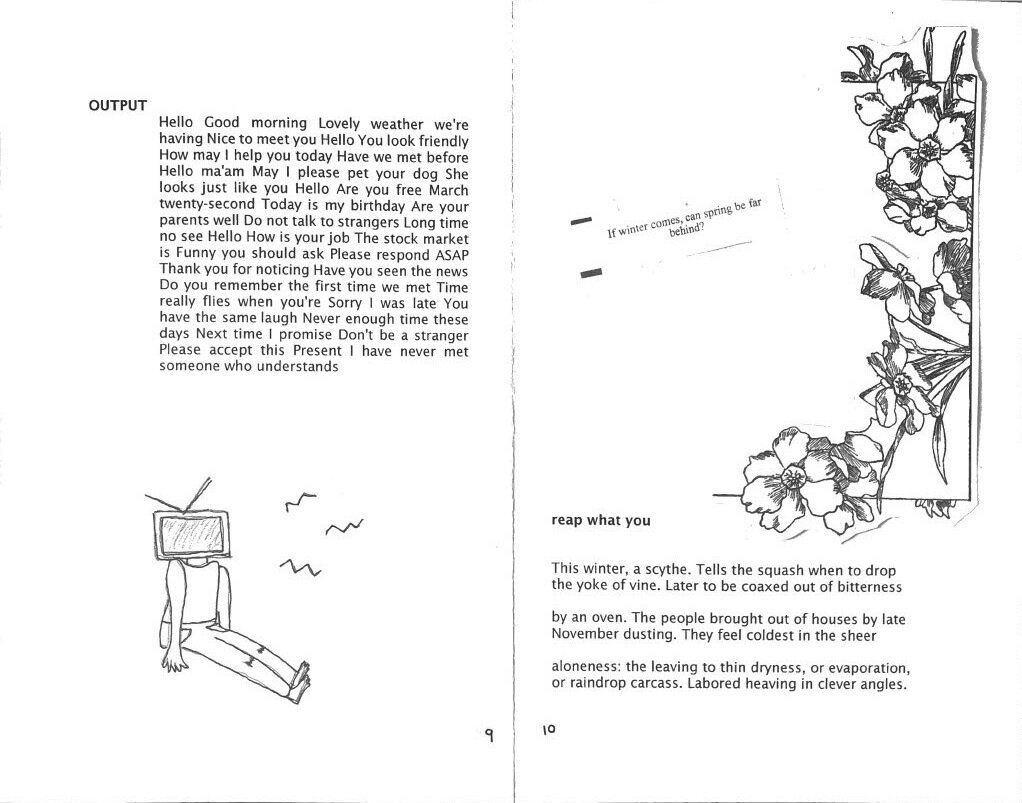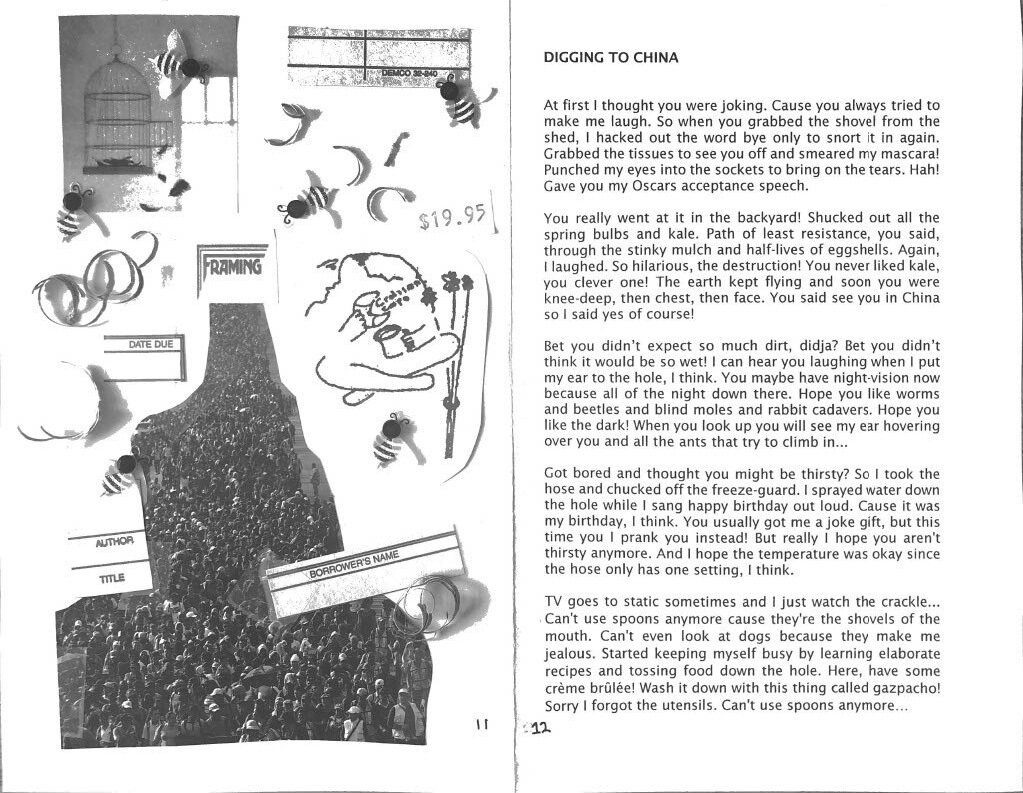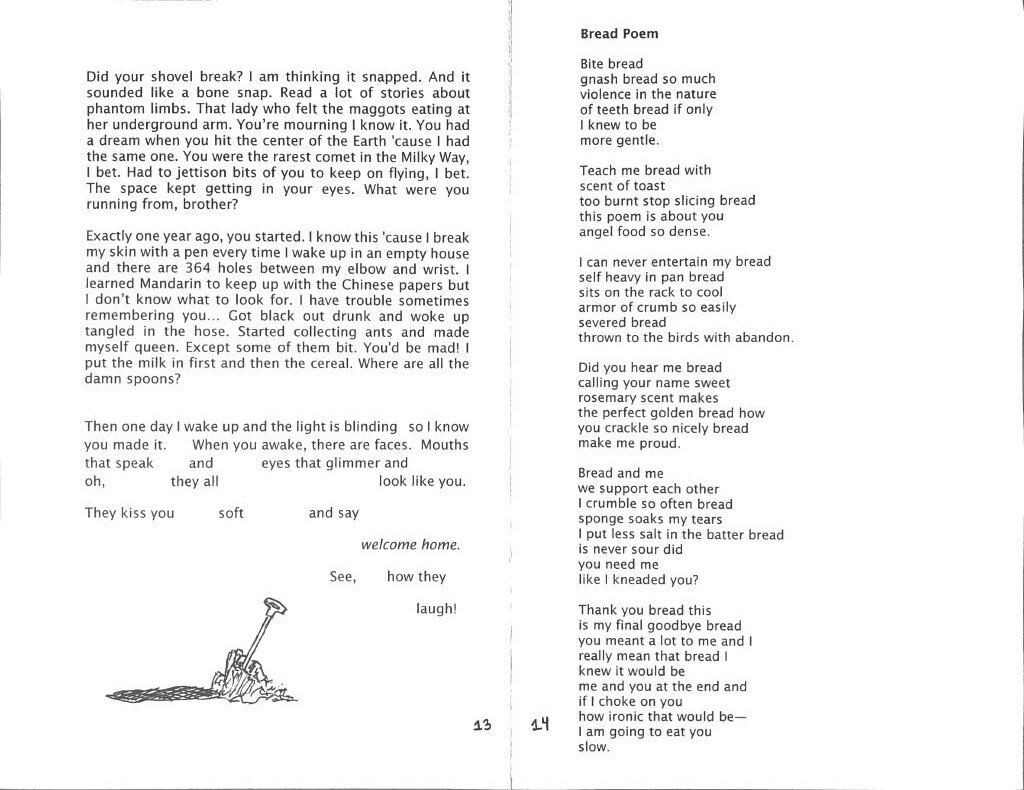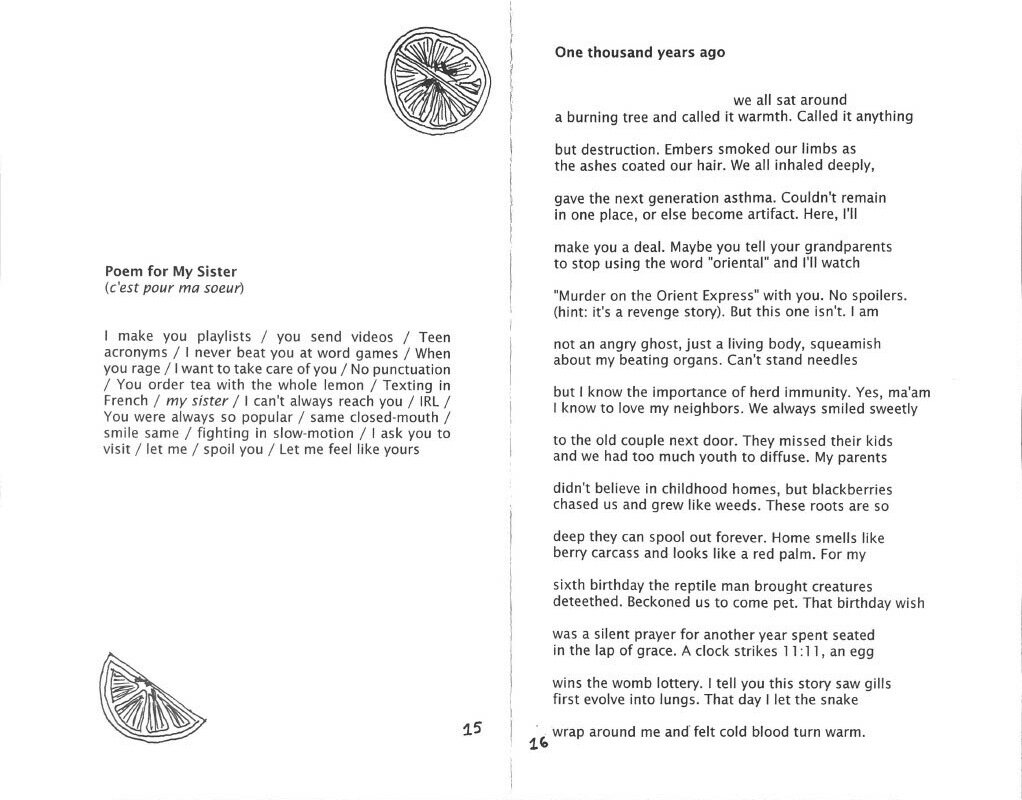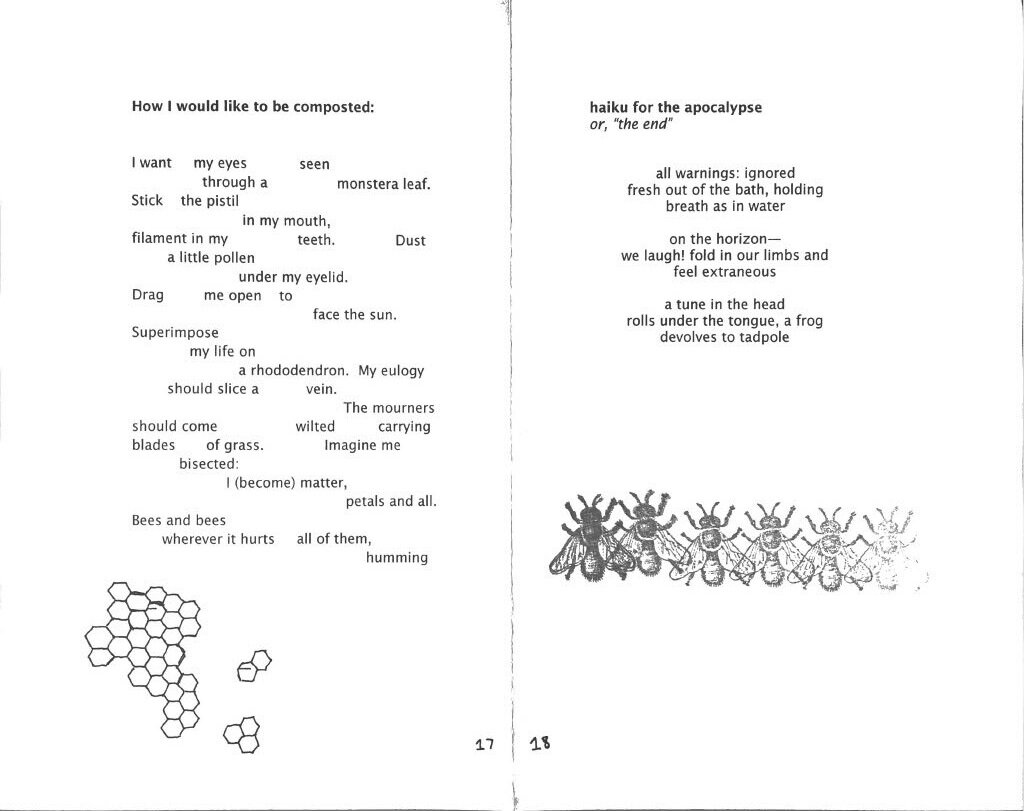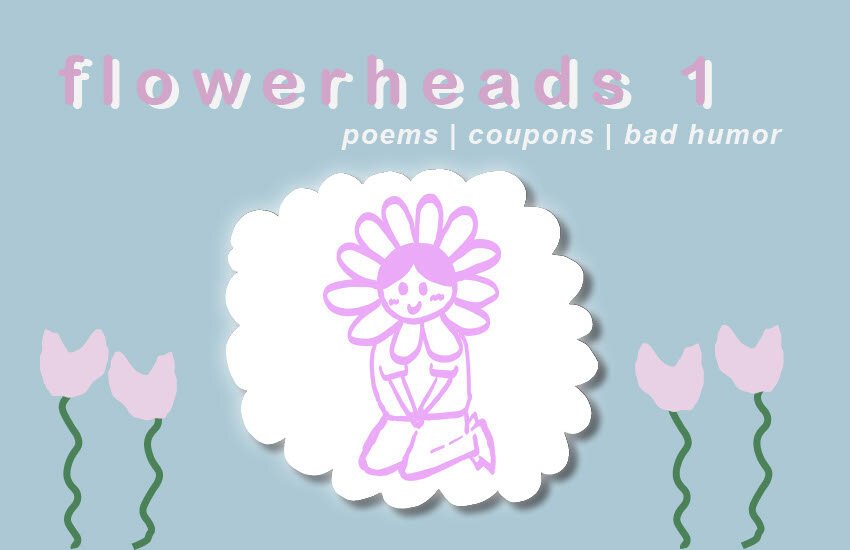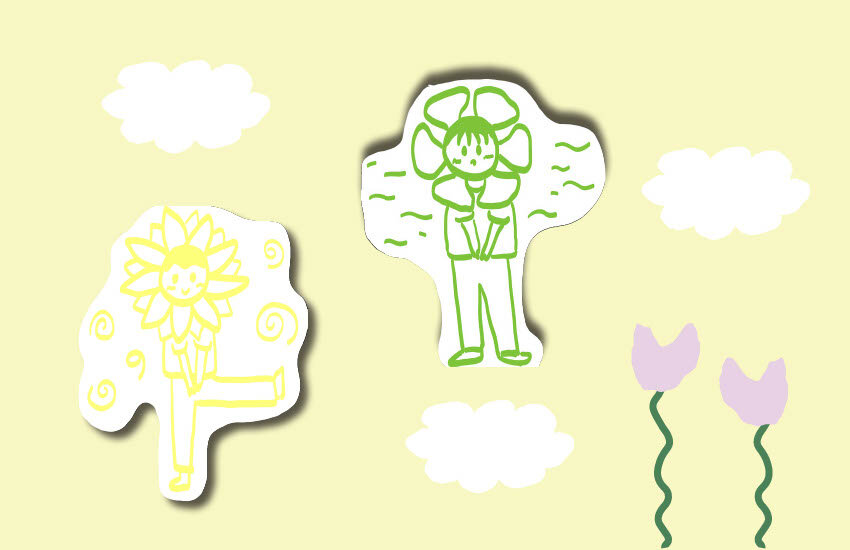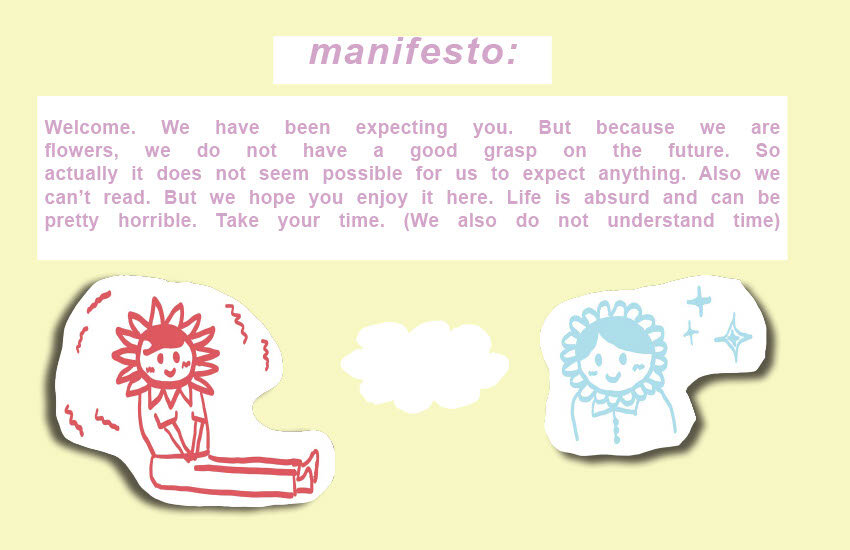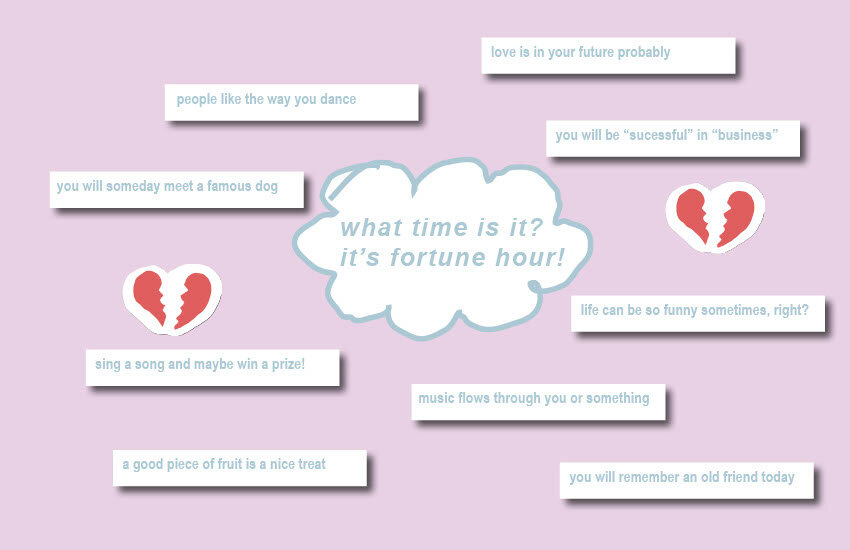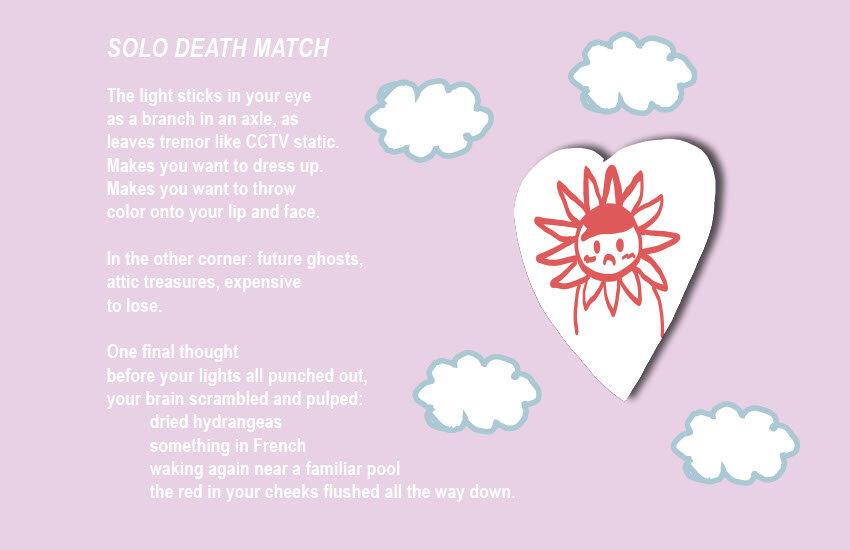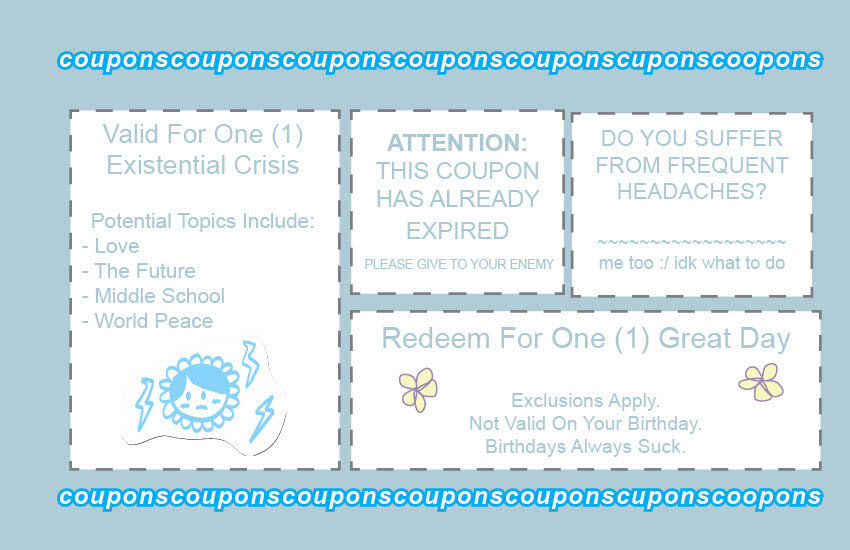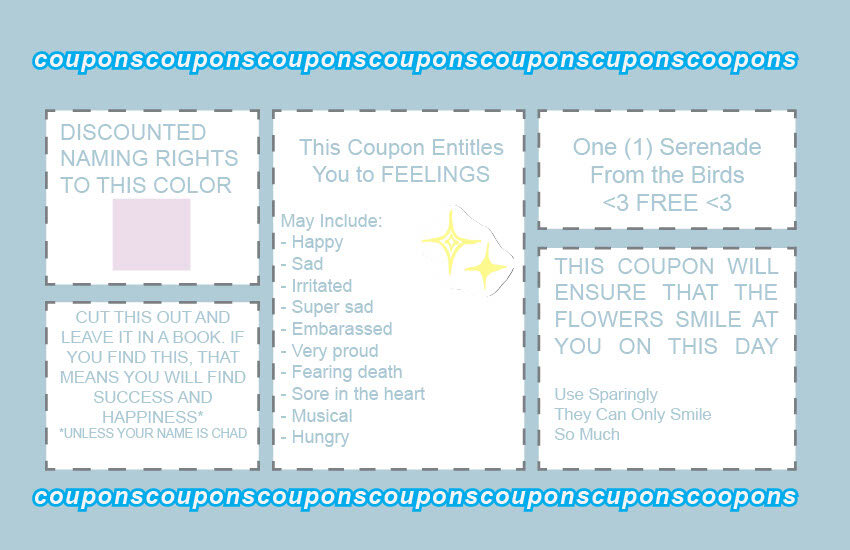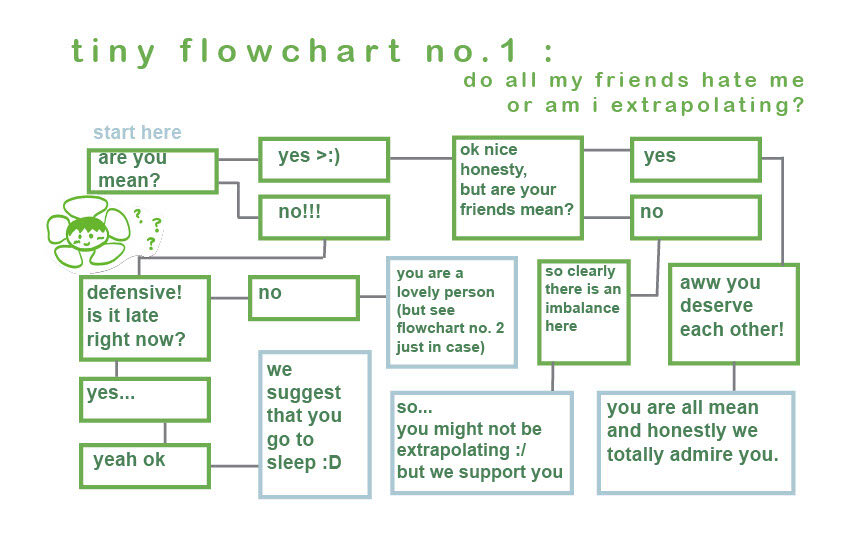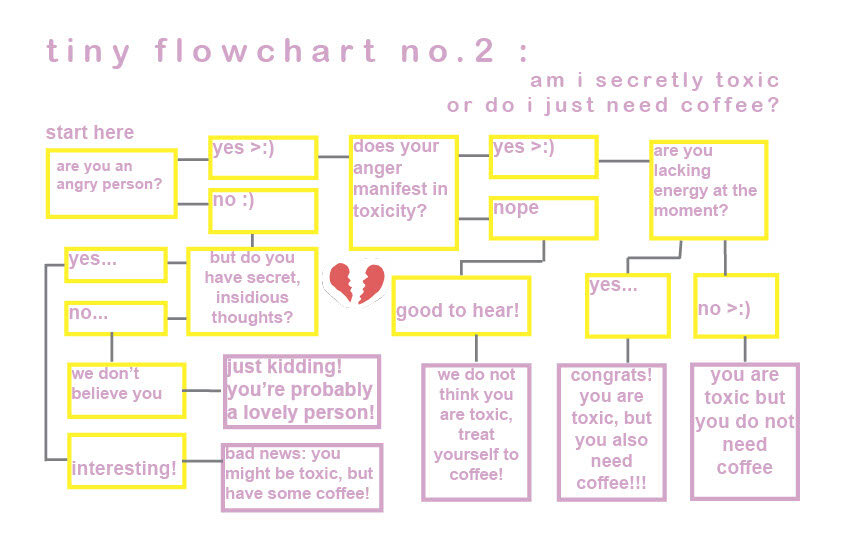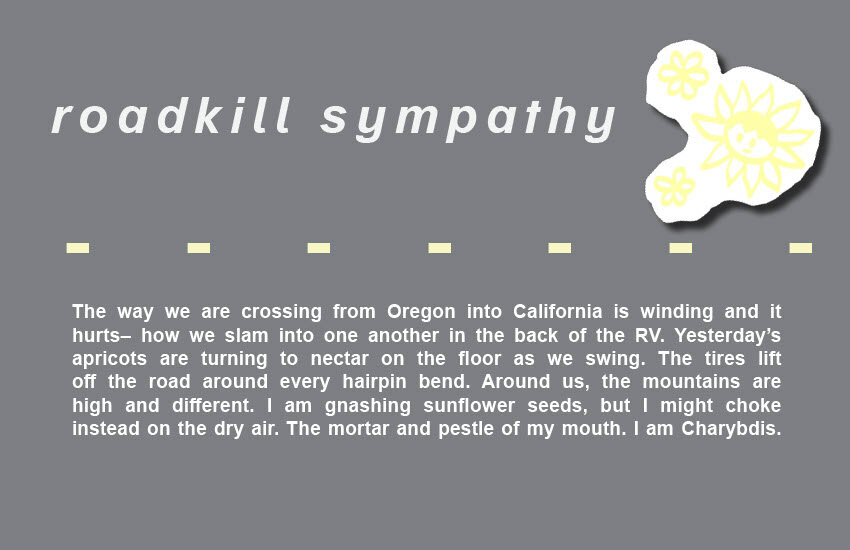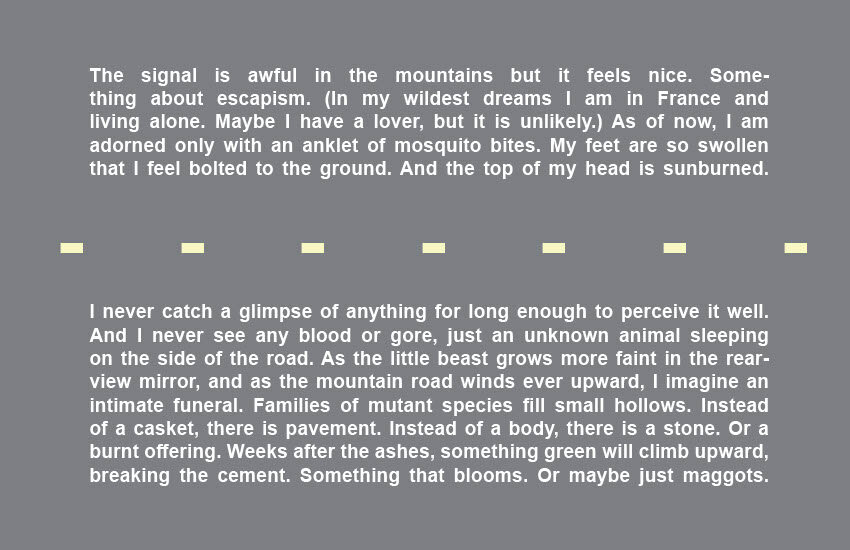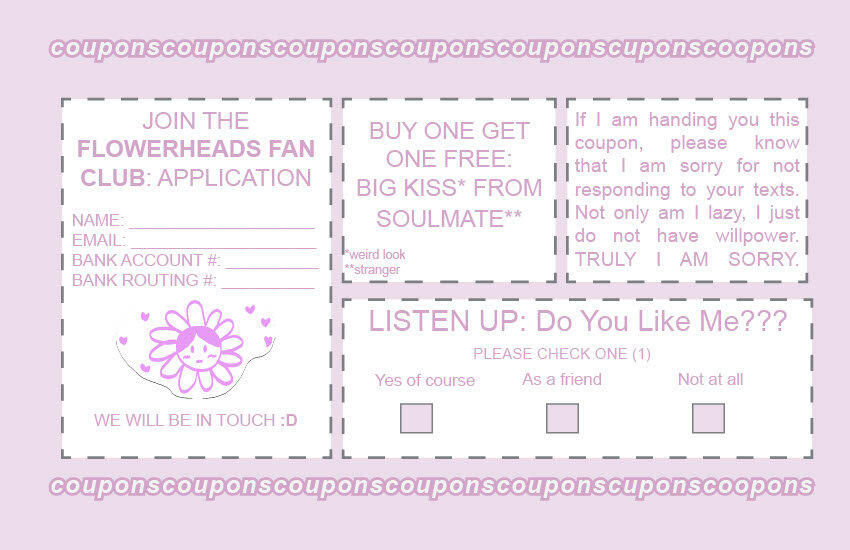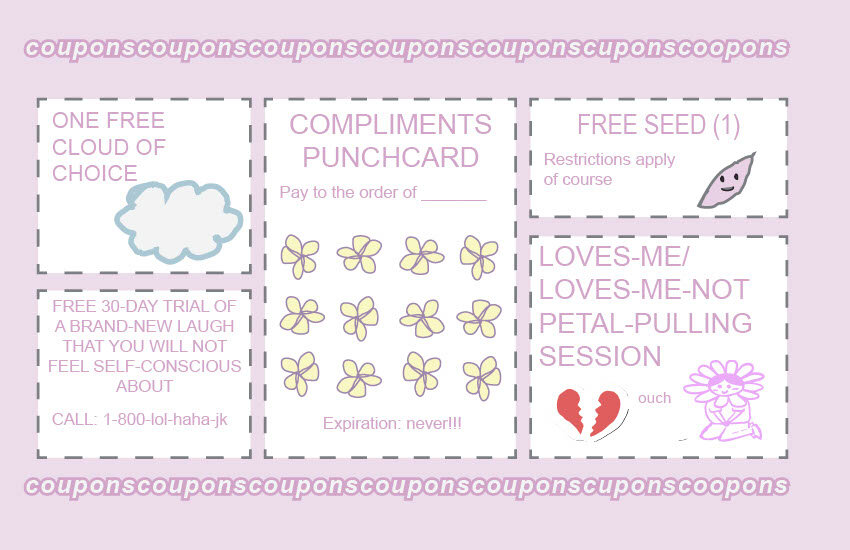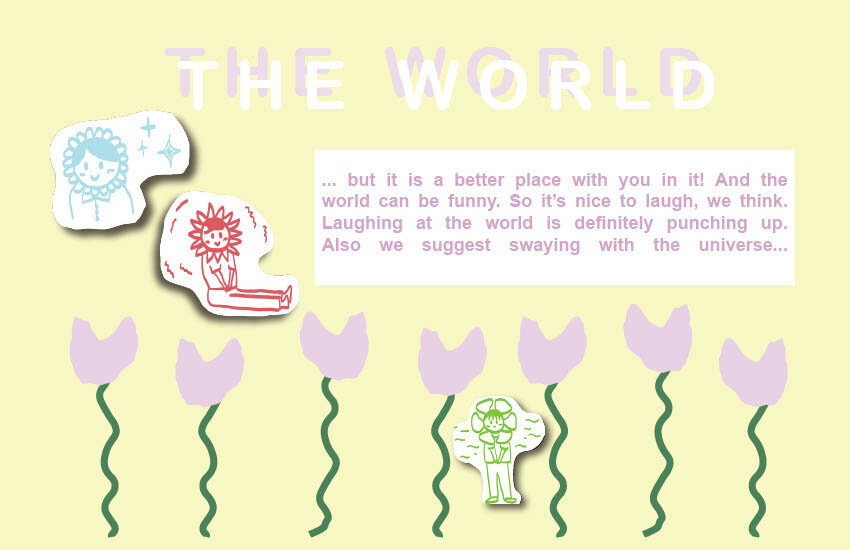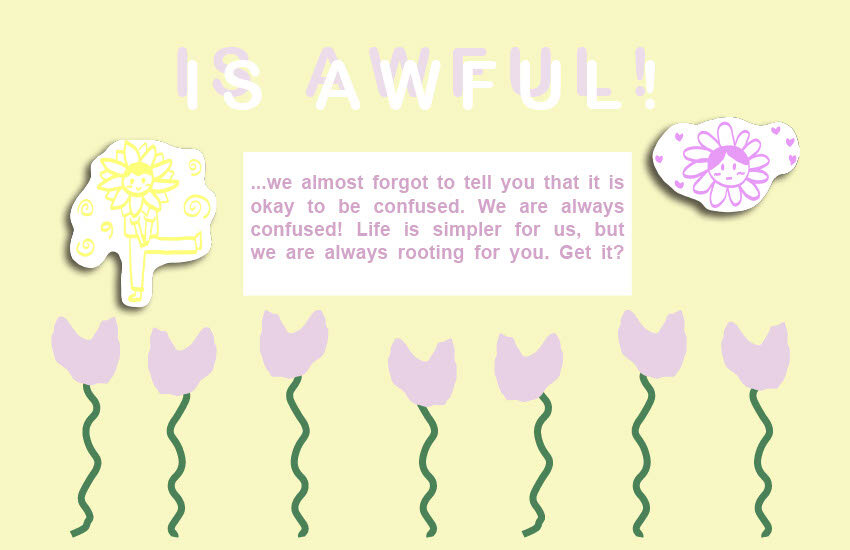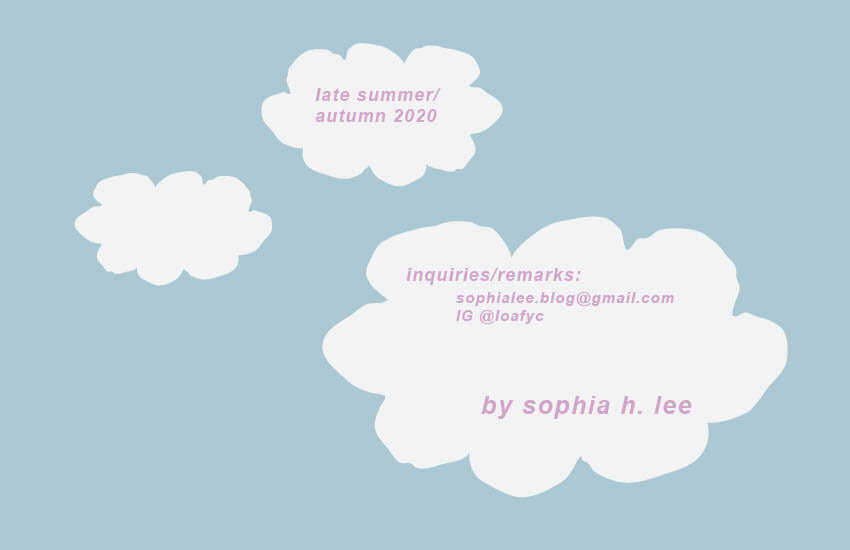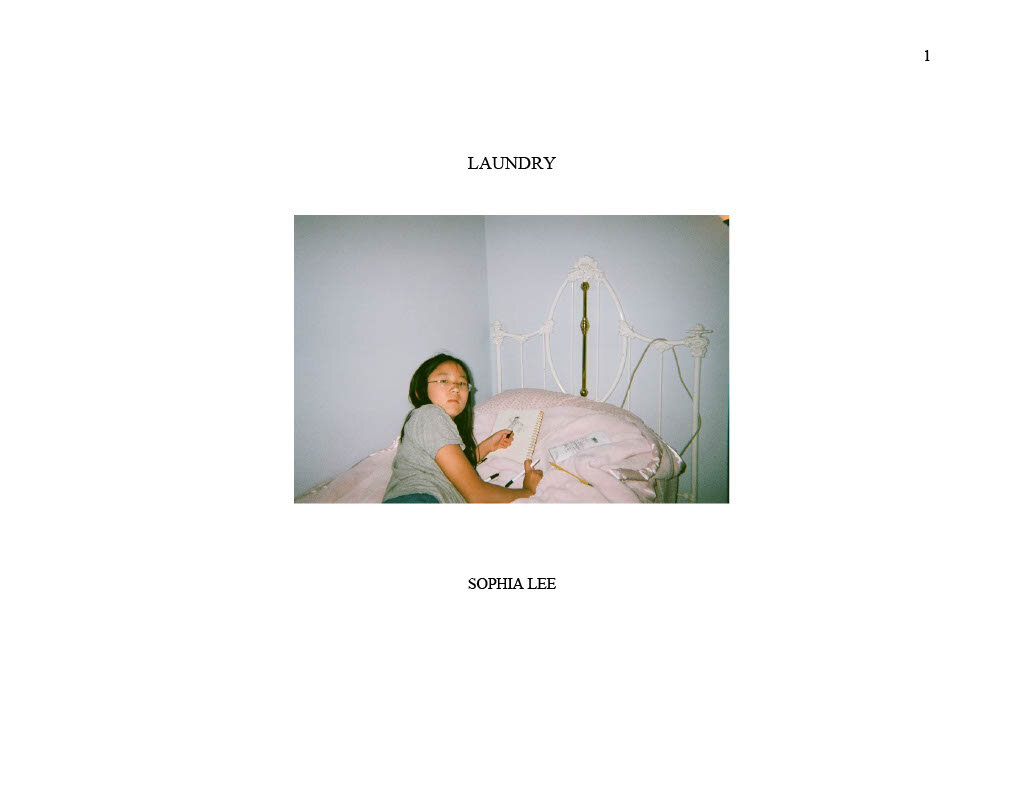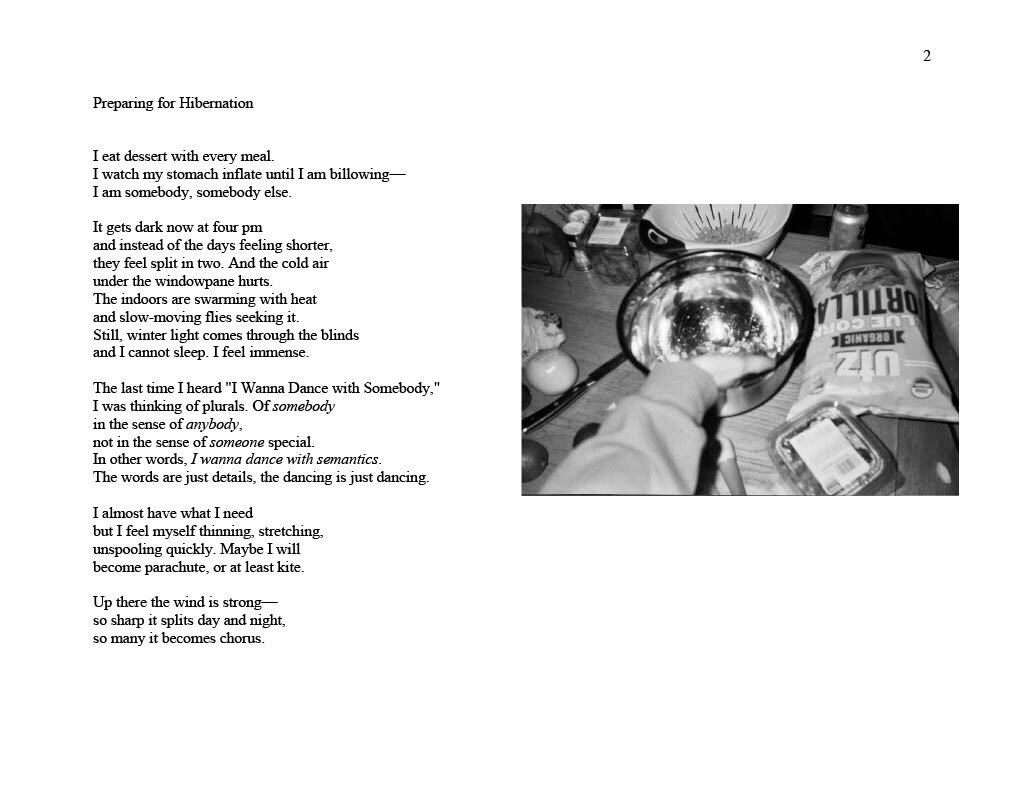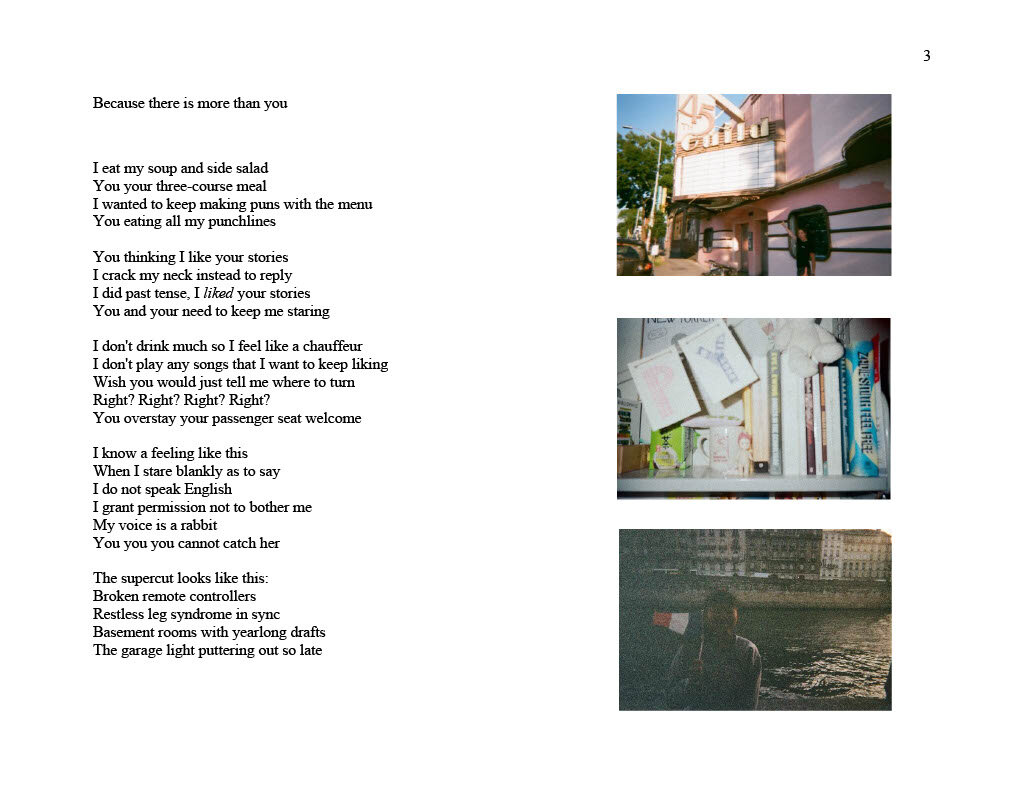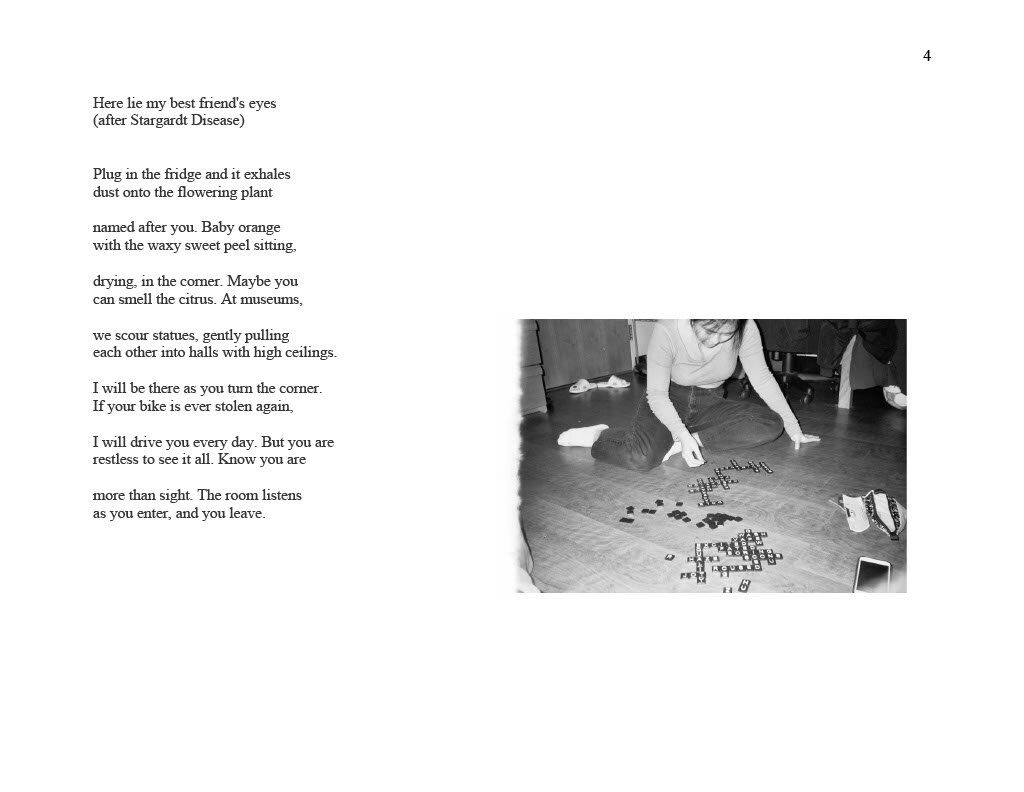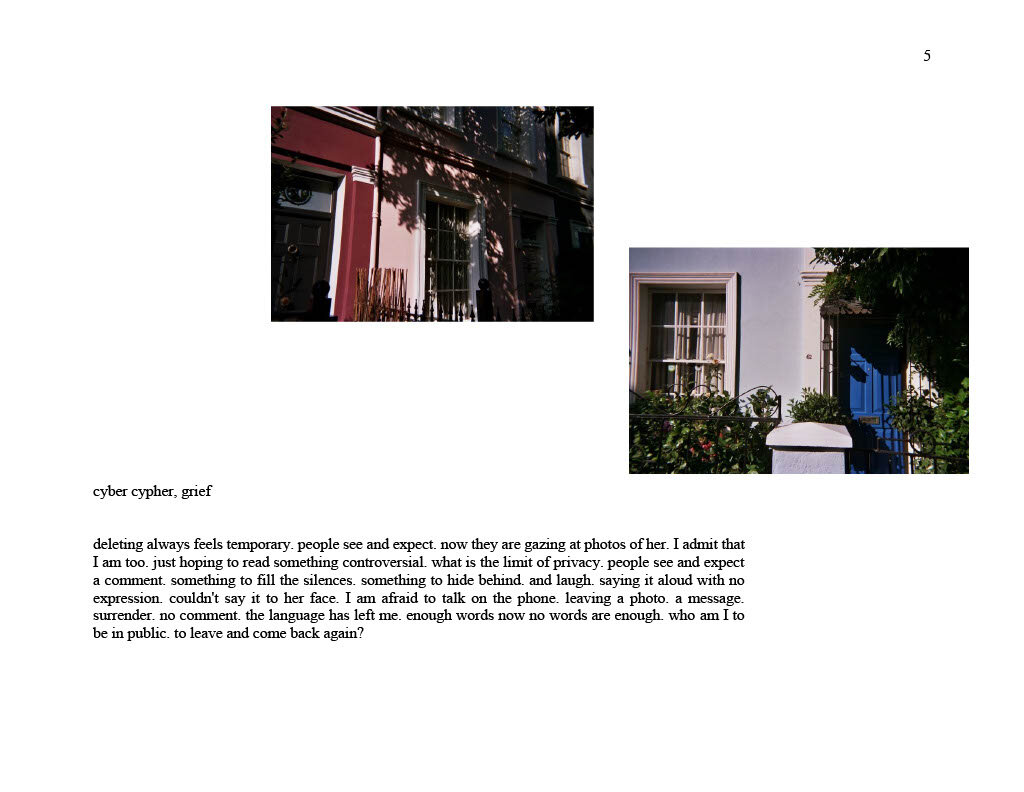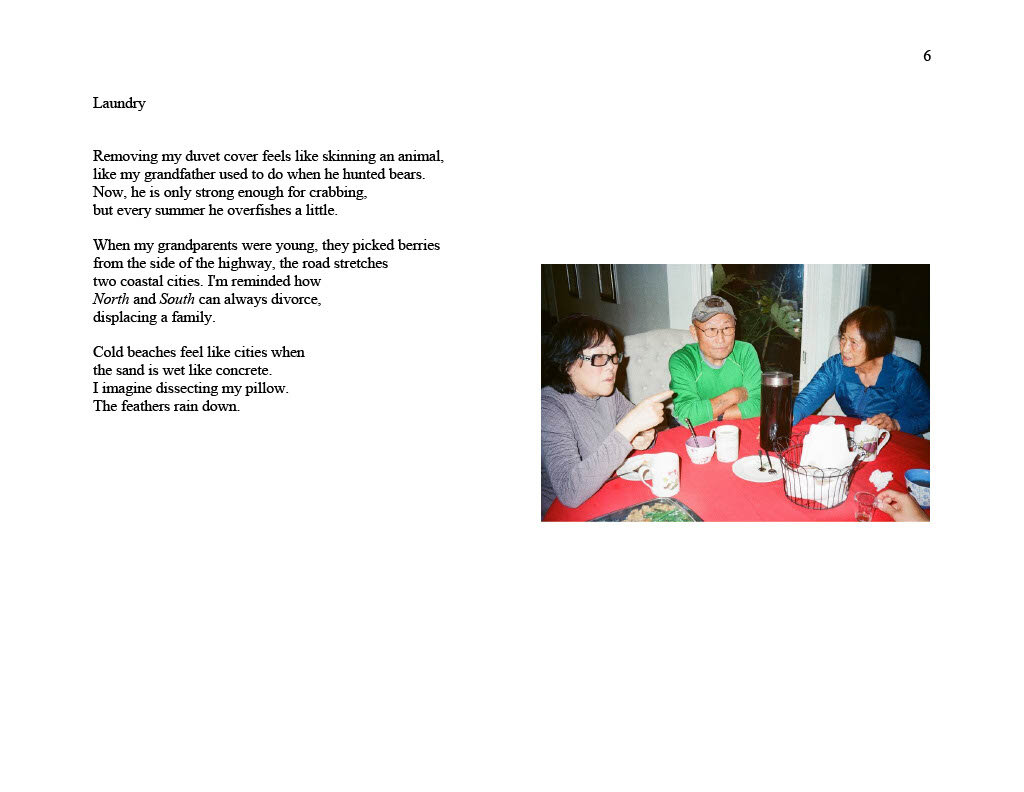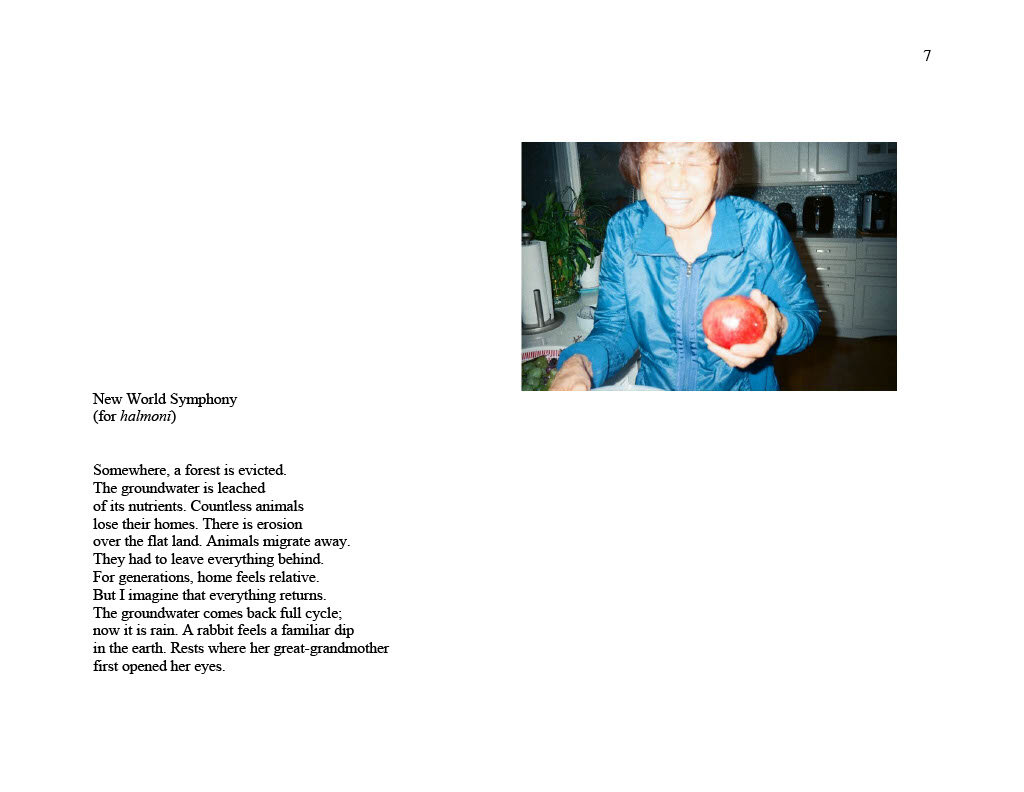Interview by Melissa Wang
Photos by Madalyn Hay on FaceTime
Hello!
Hi!
Introduce yourself.
My name is Sophie. I'm a junior in CC. I'm studying creative writing and history, and I write poetry and I make zines.
Ok, first question - why all the bees in your zines? What do they mean?
That's a good question. I guess I'm not trying to put in a lot of bees into my work, but I've always really liked them. I'm terrified of needles, which is weird, because bees are essentially flying needles; I've always said that if I get a tattoo, it would be a bee.
And a lot of poets have written about bees, right? I'm thinking of Sylvia Plath, in particular. They're so fascinating. I love their social lives and their hierarchy. So cool. I don't know. There's just, there's a lot to talk about.
Is that why your pseudonym is “Princess of Bees”?
Um, I wouldn’t call it my pseudonym. I think I like the idea of royalty and how that ties in with bees. People always talk about queen bees, and I think it's interesting to think about a princess of bees, and what that means. I don't know. But yeah, I’ve never written under a pseudonym - usually I write under Sophie. Sophia is my legal name, but for some reason I've gone by Sophie my whole life.
You mentioned Sylvia Plath as a big influence on your poetry. Who are your main influences?
Good question. I am trying to branch out a lot more. I really like Plath. I've also been reading Joe Brainard. He wrote this incredible collection called “I Remember.” The whole book is just little short snippets where he'll say, “I remember this instance,” or “I remember this.” It goes on for the length of the book. I think there’s something about that kind of collaging of memories that is so interesting.
I love how you say “the collaging of memories,” because that’s kind of the vibe of all your poetry. It’s like every stanza in your poems is a different memory. How do you plan the memories you add into your poems?
I guess I usually write around a specific feeling or specific memory that I have. I'm inspired by a lot of the poets I mentioned, in the sense that I like to stitch together different images to create a collage-like experience. And yeah, I guess I just revolve around what sounds good to my ear and what feels right in terms of conveying the feeling that I'm trying to convey.
You mentioned Joe Brainard and, in fact, you have a bunch of pop culture references scattered around your zines. How significant are these references in your poetry?
I think I wrote an entire poem based on Joe Brainard, and that stemmed out of an assignment I was given in a poetry workshop. And––I don't know, I really liked this assignment. I continued to edit it and then I just stuck it in the zine. I think something that is unique to zines is that kind of capability to collage different ideas together, most of it from my brain. But I have a lot of outside pop culture influences too. And whether it's an actual, literal magazine collage, or just bringing in different things, sketches and stuff––I don't know, zines are just so flexible. The medium is so fun, there's basically no rules.
What got you into making zines?
I guess I've been journaling ever since I was a kid. I never really considered myself an artist. I did like writing. When I discovered zines, which was maybe in early high school, it seemed natural. It was such a fun way to casually combine art, poetry, and whatever else I was writing. And the idea that it's self-published and self-distributed most of the time just made a lot of sense to me. I like the idea of being able to control what I’m doing, and to remove that pressure of needing to be published or needing to have my work be shown somewhere. So I’d make these zines and pass them out to my friends. Which, I guess, did feel a little bit selfish because I was basically being like, “I made this, please look at it.” But it was fun and I've always really liked snail mail and sending letters, so zines just came naturally to me.
How do you choose the visuals that go into your zines?
That's a good question. I am not the best at drawing. I like collage, though. I guess it depends on what materials are available to me. The good thing about zines is that you can make them with anything you have on hand. So if I'm in the mood to draw, or if I have sketches from a journal or something, then I add them in. Or if it feels like a work that's more personal or recalls specific memories, I might look for photos.
Does each zine have a specific theme?
Sometimes I start with a theme and then I incorporate different elements around it. That was probably the case with the Princess of Bees zine, where I wanted to do something about bees. And in other ones, I will come up with the poetry that I want to incorporate and create some visuals to accompany the poems, and then maybe create a title that somehow ties it all together. Coming up with titles is so fun.
And that fun shines in all your zines! Especially in “Flowerheads.” By the way, what are the flowerheads supposed to represent?
You know, I don't really know. “Flowerheads” was the first scene that I'd ever done digitally. I used Adobe InDesign, which I was super unfamiliar with. I've always done hand drawn scenes or printed out something and then taped it into the zine, so this was a new experience for me. Those flowerheads were easy to draw digitally; I liked the idea of having a cast of characters for the zine and creating this world that's populated with the flowers.
Will you make more digital zines? Or do you prefer the hand-making process?
I might do more digital. I was thinking about doing a second one over winter break, but it’s kind of time consuming. Plus, once I start on a zine, I feel like I need to finish it. I need to set out a good chunk of time for it.
What’s your work ethic when it comes to zine-making?
I guess I work on zines when I feel like it. I think I started out making more chapbooks than zines, where I was just collecting poetry that I'd written and then creating visuals to accompany them. But now that I've made a few zines, I just really like the flexibility of the medium. They also stemmed from work I was already doing with my writing or from my journal entries. So I guess sometimes, yeah, they are more organic. Like, when I have an idea, I just throw myself into making the zine. But sometimes I’ll just pull together a lot of different things that I've already written or drawn.
Are zines your main medium?
I think it's mostly zines and poetry. Like I said, I'm not a trained visual artist, by any means. But I do enjoy the ability to create something visual to accompany poems that I've written, because I feel like the visuals help make the poems fly off the page in a new way. They make the poems more fun. Does that make sense?
Yeah it does! Would you say humor plays a big role in your work? I noticed that while your poems are hilarious, they also touch really sensitive topics, like toxicity or existential crises. Do you use humor to confront these issues in your own life?
Well, I hope others see me as a funny person! I consider myself to be a person with a good sense of humor. I do improv on campus with Third Wheel, so humor has been a big part of my life. I also did drama in high school, so I’ve always liked the idea of entertaining others and making other people laugh. So I guess all of that seeps into my zines. I think humor is a great coping mechanism. Maybe that’s not always extremely healthy, but it’s definitely fun. And, yeah, especially given the pandemic and everything that's everyone's been dealing with, I think humor is really important…. I don't want to say “now more than ever,” but I was about to!
Would you say you’re an optimistic or a pessimistic person?
I want to say optimistic. And I think the goal with my poetry and zines is to always provide a feeling or experience that is not necessarily directly uplifting, but can maybe provide some comfort or nostalgia and through that have a positive impact on somebody. But yeah, like we've been talking about, the subject matter is not always the happiest. But I don't think we can expect people to only talk about happy things.
Tying back to the topic of themes, I also noticed that your family and friends are featured in several of your poems. Would you say they’ve had a big impact on your work?
Um, I guess pretty big. I'm not making them with the goal of having them published, and like I said, I tend to only distribute them among my inner circle of support. I guess they’re the main audience for these zines. Close family and friends, and then occasionally other people if they want to read my zines.
There’s also a repetition of specific images across your collection of zines. I’ve seen recurring images of bees, flowers, and even peach rings - how do you choose which themes to return to?
Hmm. I guess if they're just continually in my brain, or if I'm still thinking about them, then they will make their way back into a zine. Sometimes, I'm influenced by older things that I've written, or I will revise something old, and produce multiple things from it. So that might also be where some of these motifs come from. And sometimes they're just from super prominent memories that I have, and these memories always have a way of making it into my work.
The word “oriental” is also repeated a lot in different zines. What is your connection to that word, and to culture?
This is such a big, big topic.
In one of my workshops, we were talking about what it means to be an “identity poet.” And it's kind of crazy, because nobody wants to be pigeonholed into writing about one specific experience. I'm Korean-American, but I don't want to feel like I have to write only about the Korean-American experience, and what that experience looks like to other people, or how other people might interpret my own experience. But at the same time, identity is everywhere, in all of anything that we produce. I guess my workshop decided that everybody was an identity poet. And what that means is different for different people. I personally will always have my heritage in mind when I create zines, but I also don't want to feel restricted in what I create. So I don't try to hold myself to any standard or subject matter, but culture’s definitely there. I'm always thinking about my family and their story, too. Yeah, it's a big, big issue. Or not necessarily an issue. Just a big thing to think about.
What is the future of your poetry? What do you see yourself writing ten years down the line?
I have no idea. I think I need to make some new memories because being stuck at home has not been good for my archive of experiences. I feel like I've been pretty deprived in terms of sensory experiences, and I've been drawing a lot on past experiences or memories that I’ve already made. So I guess to answer your question, the poems in the future will just have to come out of whatever happens in the future.
Would you say 2020 has had a negative impact on your work?
Hmm, I don't know. I guess everyone has experienced 2020 a different way. I guess I do feel kind of stifled being stuck at home with my family. Not that I don't like my family! But it's just a different, different experience. And it's very quiet here. But at the same time, it's been good to be able to reflect on the past year, and my life leading up to this year. I've been talking to friends, and it seems like a lot of people have come to a new understanding of themselves, in quarantine, and in being at home. I think that’s pretty inspiring.
I’ve got another question, but I can’t segue into it.
Go ahead, hit me with it.
Flowcharts! How did you start incorporating them into your zines?
Well, I’ve never been a techie person per se, but I’ve always found flowcharts kind of funny. Like, we usually use them in business presentations, but they can be translated into anything! I remember, maybe six or seven years ago, we were trying to convince my dad to let us get a dog. So we made a flowchart called “Why We Should Get A Dog,” and it had all these scenarios with different responses that he might have given and our corresponding rebuttals. I guess I like how practical they are; they also have this interesting , choose-your-own adventure vibe that I have so much fun exploring. It’s so much fun to explore all these different possibilities of answers for a single question.
Do you look back on your zines and see how much you’ve changed over the years?
Yeah, I definitely feel like I've grown, maybe most notably, in the fact that I feel like I have more of a style or poetic voice that is unique to me now. Not that it’s fully developed, or perfect by any means; I think I’m just more comfortable with the way that I write and the way that I collage and produce zines. So definitely, with some of my older ones, I look back and I'm like, wow, six-year-old me made this. But I can still appreciate the sentiments that went into them at the time, for sure.
Do you have any advice for people who are just getting into zines?
Well, I wouldn't call myself a zine expert. The world of zines is just so big and amazing. People can basically just do whatever they want. So I advise people to do whatever they want, and to not feel like they're restricted to certain methods of distribution or publication or, or even like artistic mediums within the paper book. Just go for it.
Finally, what’s your next project?
I think I will be collecting a lot of the things that I've written and doodled and made during the past year. And maybe create some kind of… I don't wanna say “pandemic experience,” that might not be a good idea. But I would like to synthesize some kind of transformation from the past nine or so months. I don't think I can claim that the work will be all encompassing of the pandemic or even of my own experience. But I don’t know, it’ll just take some more collecting.
